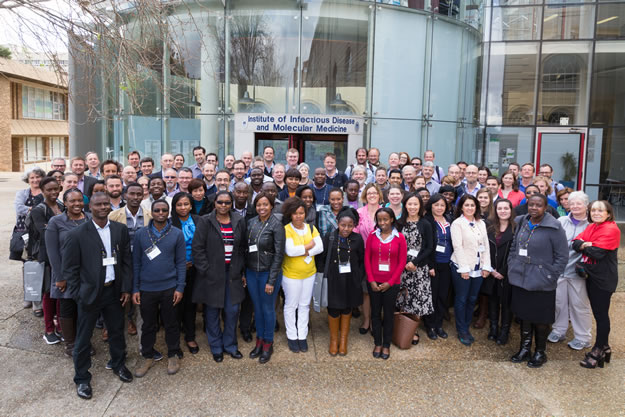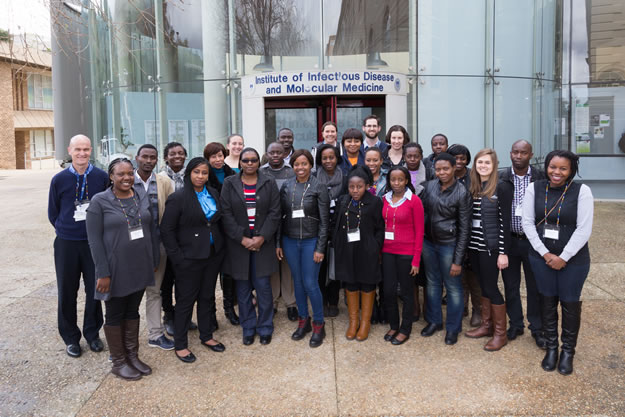Report back on 2nd EMBO Conference on AIDS-Related Mycoses at the IDM
Professor Graeme Meintjes, Dr Claire Hoving and Professor Gordon Brown represented UCT on the organizing committee of the 2nd EMBO Conference on AIDS-Related Mycoses, an international meeting focused on fungal infections that cause disease in people living with HIV infection. Graeme Meintjes is a Member of the Clinical Infectious Diseases Research Initiative (CIDRI) based in the Institute of Infectious Disease and Molecular Medicine (IDM) and of the Department of Medicine, UCT; Claire Hoving is a Member of the IDM and of the Department of Pathology, UCT; and Gordon Brown is an Adjunct Member of the IDM and heads the UKMRC Centre for Medical Mycology, Immunity, Infection and Inflammation Programme at the University of Aberdeen, UK.
As part of an ongoing effort to stem the tide of opportunistic fungal infections that continue to take a heavy toll on the most disadvantaged living with HIV-AIDS, over 100 researchers from Africa, Asia, North and South America, Europe and Australasia attended the conference to discuss current progress in the field, and future priorities. Scholarships were awarded to 9 students from African universities outside South Africa plus 20 students from South African universities, to cover all expenses to attend the workshop.
This conference followed on the success of the first meeting held in 2013, also held at the IDM. The programme included plenary sessions on Epidemiology and Public Health, Improving Diagnostics, Host-Pathogen Interactions, Immunology, Drug resistance, Treatment Strategies and new Antifungal Drugs and Vaccines. Detailed updates were given on epidemiology and public health aspects of the major AIDS-related Mycoses such as cryptococcosis, pneumocystosis, histoplasmosis and penicilliosis. Newly recognized HIV-associated invasive fungal infections due to Emmonsia spp were also highlighted. A major concern was that while antiviral rollout appears to have had some impact on the incidence of cryptococcal meningitis in sub-Saharan Africa in recent years, there is an ongoing epidemic of cryptococcal meningitis due to health system factors, patients being diagnosed with HIV late, and some patients disengaging from ART care or failing ART. Access to available antifungal drugs and the development of novel drugs is an urgent priority due to the emergence of resistance to triazoles in Candida albicans, Cryptococcus neoformans and Aspergillus fumigatus.
A further meeting is planned for 2019. Key goals over the next 3 years are:
- Better collaborative working structures for basic scientists and clinical researchers to accelerate translational medicine in this field.
- Better diagnostics and improved surveillance to identify infections earlier when treatment outcomes have better success rates.
- Access to established drugs, as well as development of new drugs and vaccines, especially in low- and middle-income countries with the highest burden of disease.
- Consolidation and extension of consortia for the delivery of multi-centred clinical trials.
- Extension of current advocacy groups and public engagement as major funding from governmental and non-governmental organizations is urgently needed.

Delegates attending the 2nd EMBO Conference on AIDS-Related Mycoses

Students from South Africa and other African countries whose attendance was sponsored by the SA Department of Science and Technology, EMBO, the Wellcome Trust, CIDRI and the Federation of African Immunological Societies, with Graeme Meintjes far left and Dowelani Ndiitwani (SA DST), second from right.
